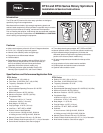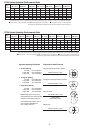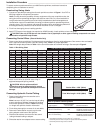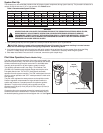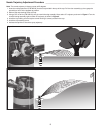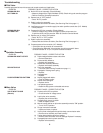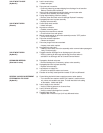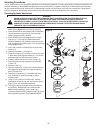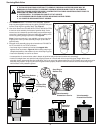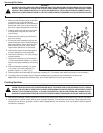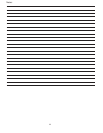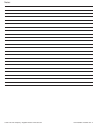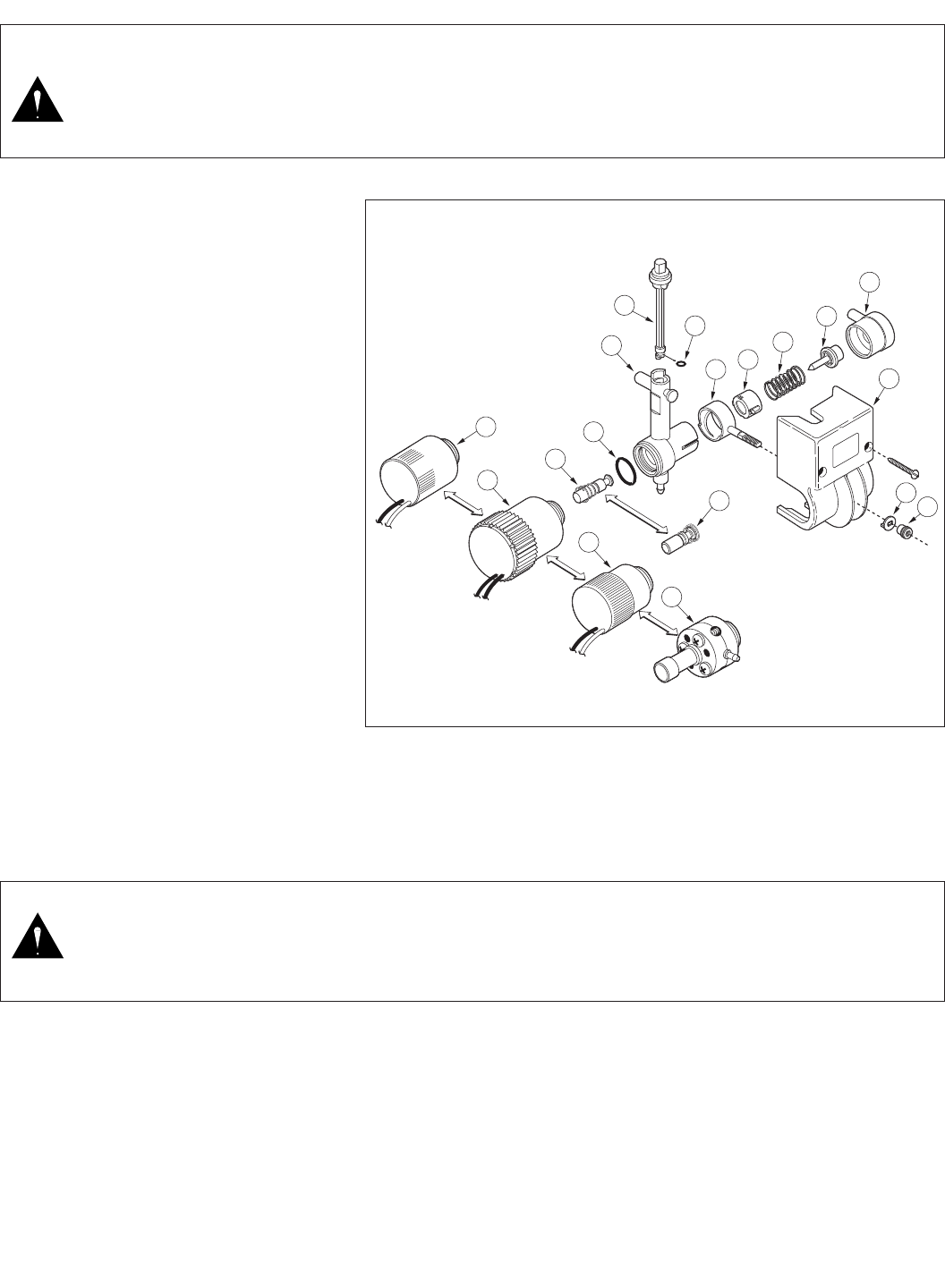
Servicing Pilot Valve
Note: Refer to Figure 10 for the following procedure.
1. Make sure that the water supply to sprinkler
is positively shut off and any residual
pressure has been bled off. If the sprinkler is
pressurized, main valve will open when the
pilot valve is disconnected from control tube.
2. Carefully remove turf and soil from the side
of the sprinkler to expose pilot valve and
control tubing.
3. Remove the two retaining screws from the
pilot valve housing.
4. Pull the pilot valve assembly away from the
sprinkler body and cut the control tubing just
below tube retainer. Unless pilot valve has
been previously removed, control tubing
length will be sufficient for re-connection.
5. Remove tube retainer and remaining piece
of control tubing from valve body fitting.
6. Remove the solenoid (1, 2 or 3) by turning it
counterclockwise.
7. Remove the retaining nut (18) and washer
(17) from the pressure adjuster (11) and pull
the pilot valve body assembly out of housing
(16).
8. Remove diaphragm assembly (15), piston
(14), spring (13), traveling adjuster (12),
pressure adjuster (11) and o-ring (7).
9. Remove selector shaft assembly (9) and plunger assembly (5). (The selector shaft retains the plunger in the valve body.)
10. Thoroughly clean and inspect all parts. Replace damaged parts as necessary and reassemble in reverse order.
Note: Refer to Illustrated Parts Breakout Book, form number 368-0044 for service part numbers.
Flushing Sprinkler _______________________________________________________________
1. With sprinkler operating, carefully step down on center of cap several times. Water will flow around riser and flush out debris.
2. Cycle sprinkler on and off several times to check for proper retraction. Cap should be even with top of body flange when fully
retracted. If riser sticks in up position, check for debris lodged between riser and body. Flush out all debris. Remove sprinkler
mechanism if necessary.
10
2
1
3
5
7
6
4
8
9
16
17
18
11
12
13
14
15
10
Figure 10
WARNING
NEVER STAND OR LEAN OVER THE SPRINKLER WHILE THE IRRIGATION SYSTEM IS BEING FILLED, DURING
MANUAL OR AUTOMATIC OPERATION OR WHEN PERFORMING SPRINKLER SERVICE PROCEDURES. DIRECT
CONTACT WITH IRRIGATION SPRAY, A FAILED OR IMPROPERLY INSTALLED SPRINKLER CONNECTION OR
SPRINKLER COMPONENTS FORCIBLY EJECTED UPWARD UNDER PRESSURE CAN CAUSE SERIOUS INJURY.
WARNING
NEVER STAND OR LEAN OVER THE SPRINKLER WHILE THE IRRIGATION SYSTEM IS BEING FILLED, DURING
MANUAL OR AUTOMATIC OPERATION OR WHEN PERFORMING SPRINKLER SERVICE PROCEDURES. DIRECT
CONTACT WITH IRRIGATION SPRAY, A FAILED OR IMPROPERLY INSTALLED SPRINKLER CONNECTION OR
SPRINKLER COMPONENTS FORCIBLY EJECTED UPWARD UNDER PRESSURE CAN CAUSE SERIOUS INJURY.



